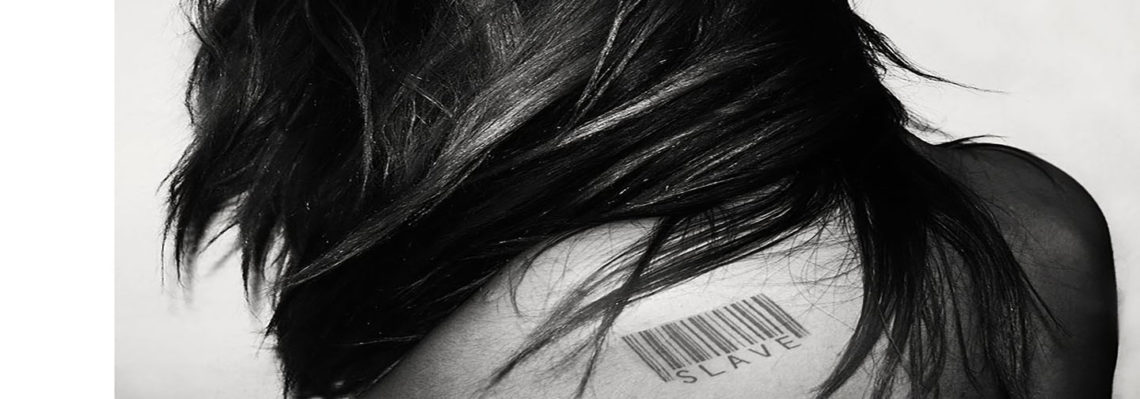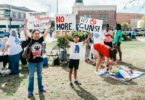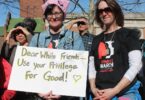No one can make an argument that sex trafficking is positive.
Millions of women and girls are sold into sexual slavery every year. Sex trafficking is a worldwide epidemic. There are 40-42 million people trapped in prostitution on a global scale. Ninety-eight percent are women and girls. There are 1-2 million in the United States alone.
A growing number of people are becoming more aware of how prostitution and other avenues such as pornography and strip clubs are really forms of sex trafficking and/or sexual exploitation. While similar, it’s important to understand the difference between sex trafficking and sexual exploitation.
Sex trafficking is defined as “the illegal business of recruiting, harboring, transporting, obtaining, or providing a person and especially a minor for the purpose of sex.” According to Polaris, sex trafficking is “the form of modern slavery that exists throughout the United States and globally.” Sex trafficking involves three types of people: pimps/traffickers, johns/sex buyers, and trafficked victims or prostituted women.
Sexual exploitation is much broader: anything of value (drugs, money, food, shelter, rent, higher status in a gang or group) is given to a person in exchange for sexual activity.
All too often, people want to ask the question, “How?” How do girls get into these situations? In her best-selling book, Paid For, Rachel Moran, women’s rights activist and international speaker, says, “there is no one reason, there is a web of reasons…”
The well-known anti-trafficking organization, Exodus Cry, responsible for the groundbreaking documentary, Nefarious: Merchant of Souls, which exposed the global slave trade, released the awareness video: “Is Prostitution a Choice?” This video reveals the truth about prostitution thanks to the testimony of countless survivors of the sex trade.
What is important to remember is how girls in these situations have had their identities stripped and have been reduced to sexual slaves.
Prostitution is not a career. It is not the world’s oldest “profession.” It is the world’s oldest “oppression.”
When peeling away the onion on this vast and complex world, one will find layers revealing all manner of atrocities: the prominence of drugs, dissociation, PTSD, background of child sexual or physical abuse, lack of safe housing, death threats including threatening family members or friends, Stockholm Syndrome, violence from pimps and sex buyers, fear, lack of control, manipulation, brainwashing, unspeakable trauma, and more.
This bleak picture alongside the testimonies of hundreds if not thousands of survivors and interventionists only serves to prove that prostitution is not a choice but rather an exploitative lifestyle that exposes a woman to the threat of assault and gratuitous violence.
This is the problem with prostitution or its clearer terminology: sex-trafficking. What is the solution?
Proponents of many European countries favor full decriminalization of prostitution, opening the floodgates to eliminating the regulations of pimp and sex buyer activity. The pop culture shift to acceptance of terminology like “sex worker” has aided in this viewpoint. Even Amnesty International publicly endorsed the policy of decriminalizing the global sex trade in 2015.
The belief is that such a stance will reduce the stigma surrounding prostitution and protect so-called sex workers. However, if we view the world of prostitution through its accurate lens as not a livelihood but an oppressive industry that preys on the vulnerable and the underage, then we can begin to strip away this deception.
Even the term “sex worker” was coined by the profiteers of the sex industry as revealed by Dorchen A. Leidholdt, Co-Executive Director of The Coalition Against Trafficking in Women.
A closer look at these European countries shows a glimpse into what can only be described as a horror house. One of Exodus Cry’s cities in focus was Berlin, Germany, which is home to Europe’s largest brothel. Over one million men buy sex in Berlin, Germany every night.
Nothing is off the table in the realm of prostitution and pornography in this culture; the amount of degradation women are forced to endure is off the charts. No other industry leaves women in positions of such “exhaustion, pain, injuries, and infections…”
Where legalization of the sex industry exists, criminal activity thrives. In fact, a 2012 study of 116 countries published in World Development discovered that legalized prostitution was associated with greater human trafficking while criminalizing prostitution in Sweden (the Nordic Model to criminalize the buying of prostitution and not the selling) had the opposite effect of “shrinking the prostitution market” and decreasing human trafficking.
Other countries such as Norway, France, and Canada are following the pattern of Sweden’s Nordic Model. The model is one from which the United States could largely benefit.
Over the past eleven years that I’ve been researching and writing on trafficking, volunteering at events, networking with interventionists and survivors, training, and working alongside other abolitionists, I’ve come to recognize one universal truth: everyone has a place in anti-trafficking.
At Justice Awakening’s three-day coalition of abolitionists raising their voices against the evils of trafficking while discovering hope and power through this, Action169 Director, Danielle Freitag, asked everyone, “What is your word?”
Perhaps it is “safe house mommy.” Perhaps it is interventionist, preventionist, intercessor, advocate, sex-trafficking officer, author, legislator, or awareness-bringer. Perhaps it’s raising your children to become any one of these significant people.
Whatever your word, when you choose to pick up your anti-trafficking torch, you shine a light in the darkness.
Together, we can expose the abuse, stand up for those who have no voice, and seek to make a difference in our own communities and around the world.





Leave a Comment